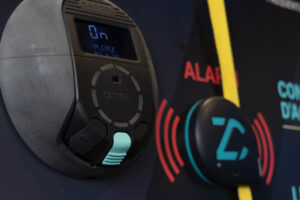
ADRIANO: A new technology for construction 4.0 based on 3D printing
May 16, 2024
EU.FFICIENT: CO-CREATION, THE FUTURE OF COLLABORATIVE INNOVATION IN EUROPE
June 7, 202404/06/2024
The Heat and Mass Transfer Technology Center (CTTC) at the Universitat Politècnica de Catalunya - BarcelonaTech (UPC) participated in the Economic COgeneration by Efficiently COncentrated SUNlight (ECOSUN) project to develop a low-cost, concentrated thermal and photovoltaic cogeneration system that increases the system’s electrical efficiency. This was achieved by reducing the absorption temperature of solar radiation and utilising the residual heat obtained from cooling the photovoltaic modules, to meet the thermal needs for heating or cooling through an absorption machine.
The CTTC of the UPC worked on the thermal and fluid dynamic optimisation of the thermal-photovoltaic concentration receiver by numerically simulating the entire device under different geometries and working conditions. This technology is designed for domestic and industrial applications. Potential application cases were studied under various environmental conditions for different regions and countries of use. A first prototype was validated under real operating conditions. The numerical results indicate an increase in the overall heat transfer coefficient of between 25% and 30%.
Consortium, budget and funding
The project also involved the Institute of Electrical Measurement and Sensor Systems of the University of Graz (Austria) and the Solar Energy Research Center of Ankara University. ECOSUN started in February 2020 and ended in January 2023. It had a total budget of €1,281,639 from the European ERA-LEARN programme.
Related Projects
- The Visualisation, Virtual Reality and Graphic Interaction Research Group (ViRVIG) at the Universitat Politècnica de Catalunya - BarcelonaTech (UPC) has participated in the XR4ED project, an initiative that connects the educational technology (EdTech) and Extended Reality (XR) sectors, with the aim of transforming learning and training across Europe.
- The inLab FIB at the UPC has collaborated with Lizcore® for the development of a proof of concept based on artificial intelligence to improve safety in climbing with autobelay devices. The system allows the automatic and accurate detection of risk situations before starting a route.
- Researchers from the Centre for Image and Multimedia Technology of the UPC (CITM) and from the DiCode research group (Digital Culture and Creative Technologies Research Group) of the Universitat Politècnica de Catalunya – BarcelonaTech (UPC) have worked on the project The Eyes of History, an initiative of the Catalan Agency for Cultural Heritage that offers an immersive view of Catalan cultural heritage. It is especially aimed at the first and second cycles of secondary education and was created to bring heritage into the classroom. Its goal is to bring the history and monuments of Catalonia closer in a vivid and innovative way, using tools such as virtual reality and new museographic narratives.
- City and Play is a social action project coordinated by researchers from the Centre for Image and Multimedia Technology (CITM) and the DiCode research group (Digital Culture and Creative Technologies Research Group) of the Universitat Politècnica de Catalunya – BarcelonaTech (UPC), the Universitat Oberta de Catalunya (UOC) and the University of Barcelona (UB), and funded by Barcelona City Council. The aim of the project is to promote civic competences and reflection on the urban environment among adolescents through the creation of an open framework that uses methodologies based on play, co-creation and storytelling.







